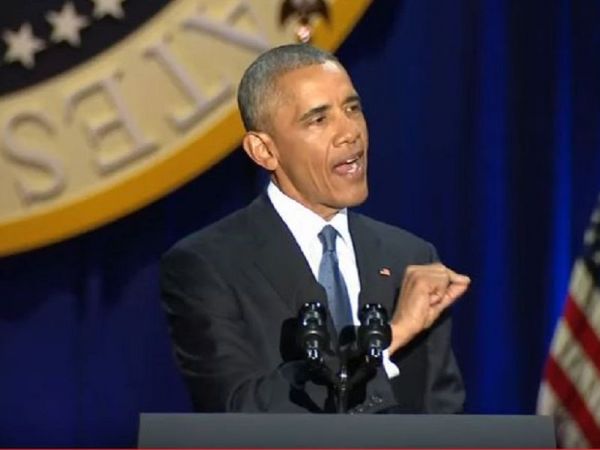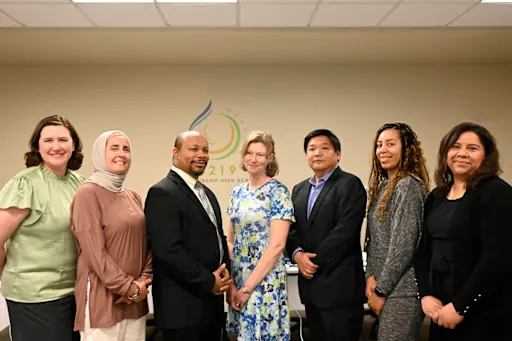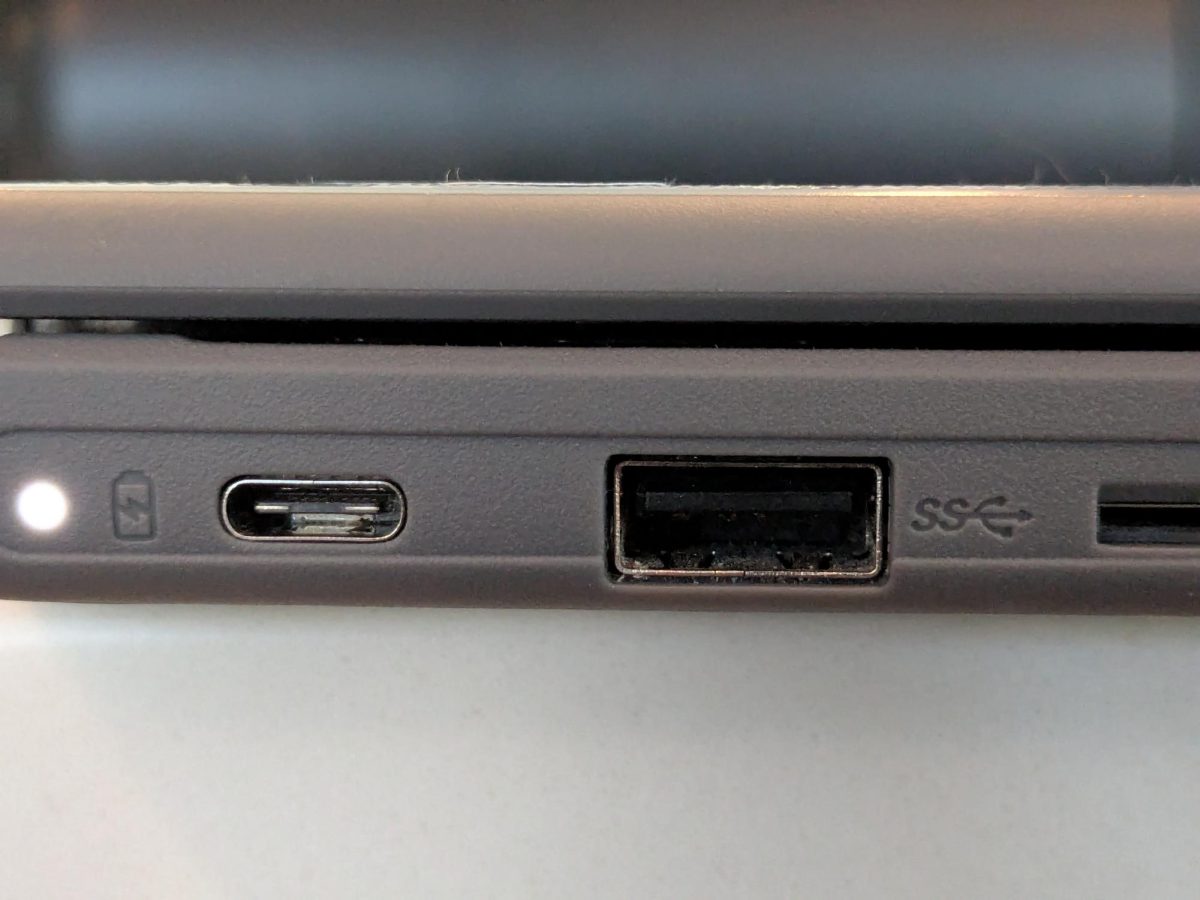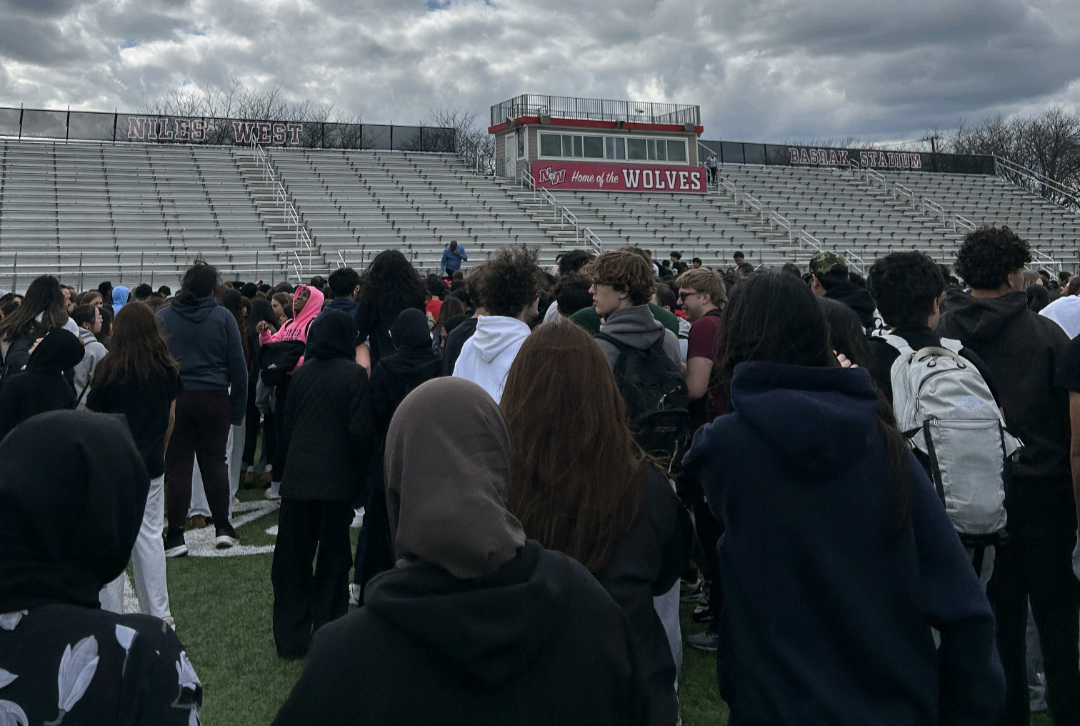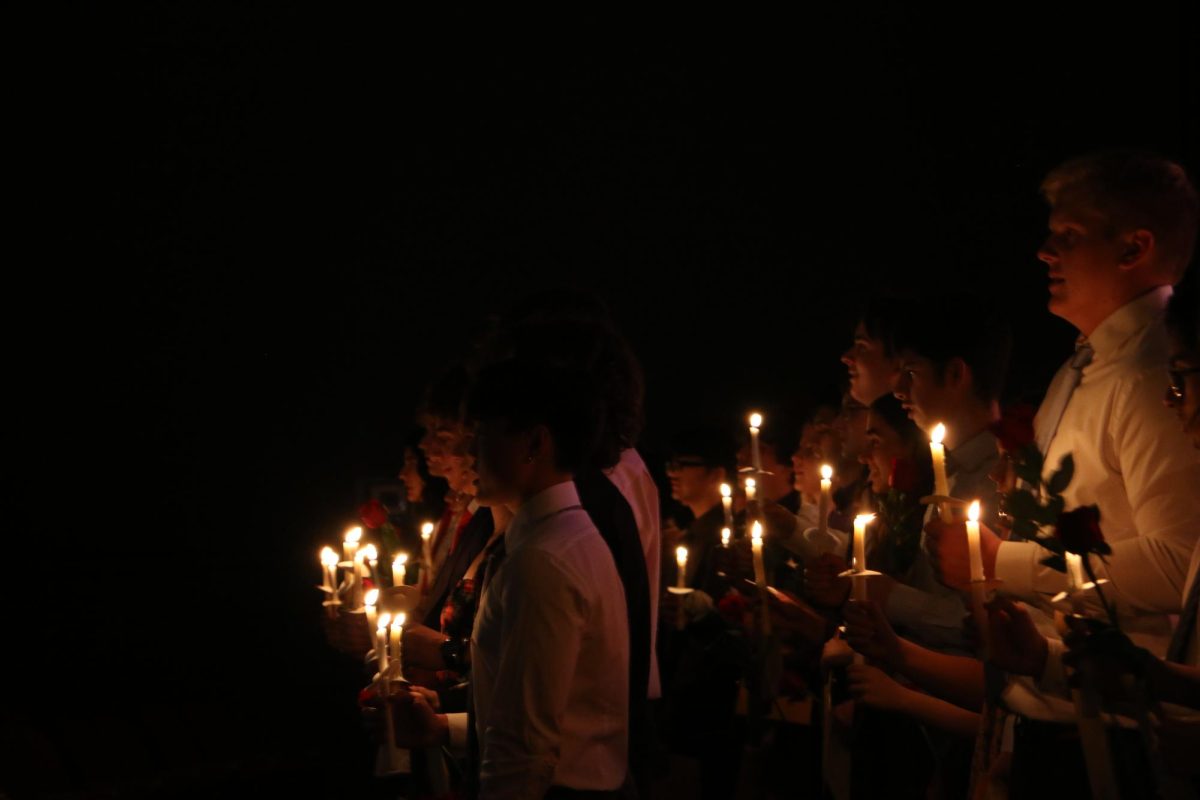Outgoing President Barack Obama delivered his farewell address Tuesday night to an eager crowd in his home city of Chicago.
Following early cheers of “Four more years!” from the crowd, Obama reminisced on the successes of his presidency and highlighted his hopes for the future and all that must still be accomplished. Listing what he interprets as “threats to our democracy,” he had the chance to elaborate on issues that have plagued his tenure as president and remain relevant with the upcoming inauguration of president-elect Donald Trump.
A crucial theme was the threat of political apathy, which has become something of an affliction in modern American politics, and which Obama took time to warn against, affirming the multitude of benefits that stem from civic engagement.
“It falls to each of us to be those anxious, jealous guardians of our democracy. To embrace the joyous task we’ve been given, to continually try to improve this great nation of ours. Because for all outward differences, we in fact all share the same proud title, the most important office in a democracy — citizen,” he said. “So you see, that’s what our democracy demands. It needs you. Not just when there’s an election, not just when your own narrow interest is at stake, but over the full span of a lifetime.”
He continuously emphasized the priority of constantly challenging our contentment when there is room for improvement.
“We can argue about how to best achieve these goals,” he said, referencing such issues as tax reform and union organization. “But we can’t be complacent about the goals themselves, for if we don’t create opportunity for all people, the disaffection and division that has stalled our progress will only sharpen in years to come.”
Going even further, Obama leveled a surreptitious dig at Trump’s campaign and debate style as he called for standards in politics as a means of preserving the principles of reasoned debate, characterizing “this selective sorting of the facts” favored by the president-elect both dishonest and self-defeating.
“Politics is a battle of ideas; that’s how our democracy was designed. In the course of a healthy debate, we prioritize different goals and the different means of reaching them,” he reminded Americans. “But without some common baseline of facts, without a willingness to admit new information and concede that your opponent might be making a fair point, and that science and reason matter, then we’re going to keep talking past each other.”
He went on to preach about the importance of unity, not uniformity, in national politics.
“Understand, democracy does not require uniformity,” he counseled. “Our founders argued, they quarreled, eventually they compromised; they expected us to do the same. But they knew that democracy does require a basic sense of solidarity. The idea that for all our outward differences, we’re all in this together. That we rise or fall as one.”
Reminding Americans that the protection of our principles doesn’t just lie with the military, Obama called for continued diligence against external threats without ceding our core convictions, for the sake of protecting our democracy.
“Democracy can buckle when it gives in to fear. So just as we as citizens must remain vigilant against external aggression, we must guard against a weakening of the values that make us who we are,” he said.
Referring to foreign aggressors such as ISIL and Russia, Obama counseled that “they cannot defeat America unless we betray our Constitution and our principles in the fight.”
This led to the central tenet of his speech, an emphasis of “right over might” and the prioritization of American principles over power in response to the often disturbing rhetoric that was commonplace during the 2016 election.
Reflecting on the lack of intrinsic value the Constitution has, Obama said: “We, the people, give it power. We, the people, give it meaning with our participation and with the choices that we make and the alliances that we forge.”
Obama also took the time to touch on race relations, a topic he has generally evaded, pointing to the how imperative empathy is.
“We have to pay attention and listen,” he counseled. “For white Americans, it means acknowledging that the effects of slavery and Jim Crow didn’t suddenly vanish in the sixties. That when minority groups voice discontent, they’re not just engaging in reverse racism or practicing political correctness. When they wage peaceful protest, they’re not demanding special treatment, but the equal treatment that our founders promised.”
Challenging the constant rhetoric of an “underserving minority” group, Obama reminded Americans that only the 1 percent truly benefit from that ingrained hatred, while in contrast, providing education to all children, despite race, class, or immigration status, will only help America as a whole.
“If every economic issue is framed as a struggle between a hard-working white middle class and an underserving minority, then workers of all shades are going to be left fighting for scraps while the wealthy withdraw further into their private enclaves,” he said.
At the speech’s climax, Obama decisively expressed his hope for the future of our nation and our world in the hands of younger generations.
“You know that constant change has been America’s hallmark. That is not something to fear, but something to embrace. You are willing to carry this hard work of democracy forward,” he declared. “You’ll soon outnumber all of us, and I believe, as a result, the future is in good hands.”
As he concluded his speech with tears in his eyes while offering touching thank-you’s to Vice President Joe Biden and First Lady Michelle Obama, the president strengthened the family-centered, compassionate image that many voters have come to admire him for.
Many of our students find these qualities commendable in the president.
“I didn’t only like Obama because I shared his political views; I really think he was funny, and he seemed to be able to connect with our younger generation,” junior Julia Gladysz said. “I think it’s because he is extremely charismatic. I’m especially sad, though, that Obama is leaving, because his replacement is not somebody I want to see in office.”
“I feel like the relationship between the president and the first lady really helped inspire people,” junior Ema Hadzimuratovic reflected, referring to the famously close bond between the first couple. “It really humanized Obama towards us, especially teenagers and young adults, who really admire Michelle Obama for her education and activism.”
Niles West teachers also weighed in on Obama’s final address.
“He tried to highlight how successful we’ve been from where he started, which didn’t get a lot of play in the election, and he tried to give a vision of where he thinks things should go. It’s typical of things like George Washington or Dwight Eisenhower do, where they are talking about where the country should go and giving warnings about things that could happen,” American history teacher Joseph Meyer explained. “I think he was effective in that realm. What that’s going to do for the split among partisanship now, I don’t know.”
English teachers were happy to explain the significance of Obama using a popular quote from a quintessential American novel, Harper Lee’s To Kill a Mockingbird. The quote, “You never really understand a person until you consider things from his point of view … until you climb into his skin and walk around in it,” was adapted by the president while reiterating the importance of empathy in combating racism after being the memorable line of lawyer Atticus Finch, who defended an innocent black man in the novel.
“Obama used the quote from Atticus Finch because he is trying to appeal to us as human beings, not as people with political affiliations,” AP Literature teacher Dana Des Jardin said. “I also feel that it is an appeal to literacy and to the concept of education that he stressed in his speech; education for all children, even brown children, even refugee and immigrant children. Appealing to a book most Americans have read asks us to go back to that simpler, more open-minded time when we were young and in high school, and starting to grapple with the issues we’re still facing today.”
Regardless, Obama’s presidency will be remembered by many as a time of optimistic politics and hope thanks to his resonating signature chant, “Yes we can.”



